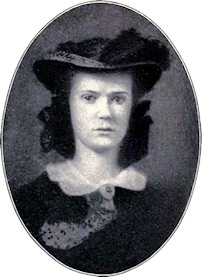Thursday, July 23d.
It is bad policy to keep us from seeing the prisoners; it just sets us wild about them. Put a creature you don’t care for in the least, in a situation that commands sympathy, and nine out of ten girls will fall desperately in love. Here are brave, self-sacrificing, noble men who have fought heroically for us, and have been forced to surrender by unpropitious fate, confined in a city peopled by their friends and kindred, and as totally isolated from them as though they inhabited the Dry Tortugas! Ladies are naturally hero-worshipers. We are dying to show these unfortunates that we are as proud of their bravery as though it had led to victory instead of defeat. Banks wills that they remain in privacy. Consequently our vivid imaginations are constantly occupied in depicting their sufferings, privations, heroism, and manifold virtues, until they have almost become as demigods to us. Even horrid little Captain C–– has a share of my sympathy in his misfortune! Fancy what must be my feelings where those I consider as gentlemen are concerned! It is all I can do to avoid a most tender compassion for a very few select ones. Miriam and I are looked on with envy by other young ladies because some twenty or thirty of our acquaintance have already arrived. To know a Port Hudson defender is considered as the greatest distinction one need desire. If they would only let us see the prisoners once to sympathize with, and offer to assist them, we would never care to call on them again until they are liberated. But this is aggravating. Of what benefit is it to send them lunch after lunch, when they seldom receive it? Colonel Steadman and six others, I am sure, did not receive theirs on Sunday. We sent with the baskets a number of cravats and some handkerchiefs I had embroidered for the Colonel.
Brother should forbid those gentlemen writing, too. Already a dozen notes have been received from them, and what can we do? We can’t tell them not to. Miriam received a letter from Major Spratley this morning, raving about the kindness of the ladies of New Orleans, full of hope of future successes, and vows to help deliver the noble ladies from the hands of their oppressors, etc. It is a wonder that such a patriotic effusion could be smuggled out. He kindly assures us that not only those of our acquaintance there, but all their brother officers, would be more than happy to see us in their prison. Position of affairs rather reversed since we last met!
